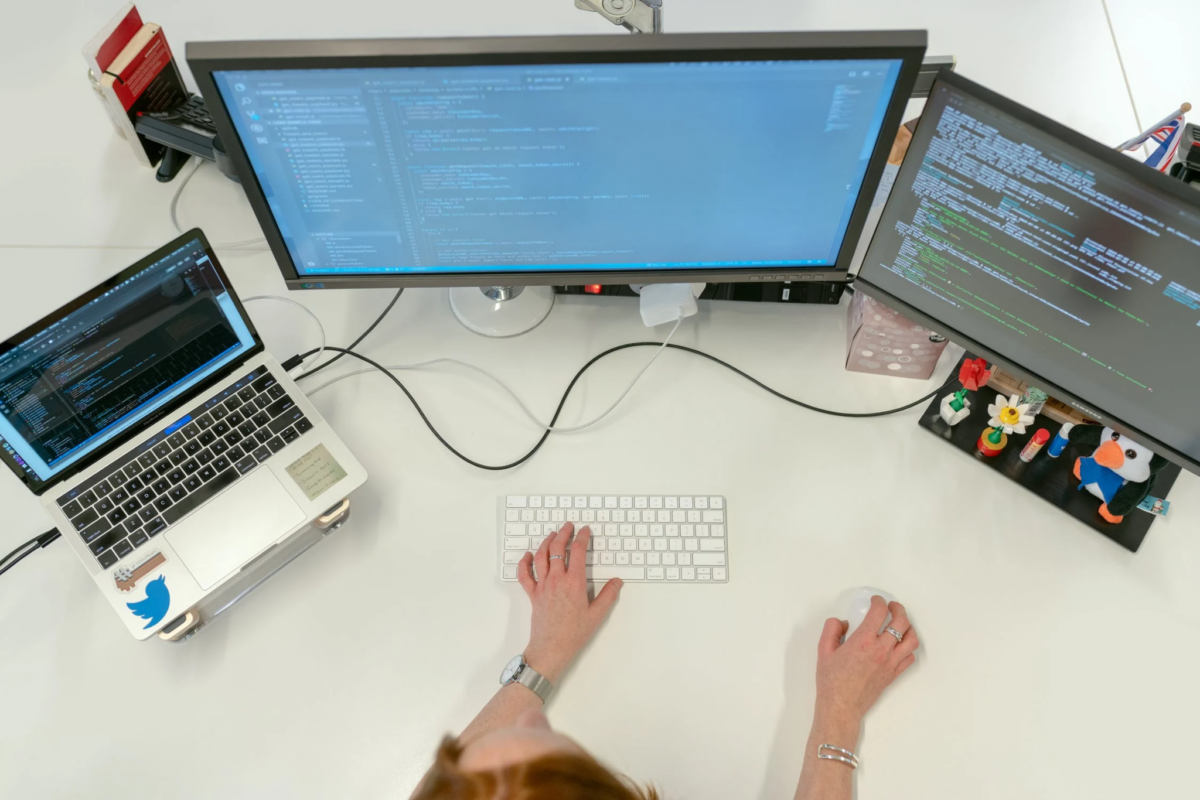The 30%-ruling is a tax advantage, created for employees who are posted or recruited from abroad, to work in the Netherlands. The purpose of this advantage is to cover all the various costs they incur, as a result of moving their lives oversees to. This can be a real blessing to expats! In order to be eligible to benefit from the 30% ruling yourself, there are several conditions that you must satisfy. These pertain to matters like: the reason you came to the Netherlands for work, your application for the 30% ruling and where you were working before you began your job in NL. To complicate matters further, these stipulations are due to change in the coming year.
On this page, we have outlined the current conditions with which you must comply, and given you a forecast for their upcoming amendments. You can also find information on how you can prevent yourself from losing money if, for some reason, you do not qualify for the 30% ruling.
The Dutch 30% Ruling: The Basics
- You need not be a resident of the Netherlands to benefit from the 30% ruling
- In fact, you do not even have to physically carry out work in the Netherlands in order to be eligible for it
- An explanation of the ruling can be found in the Dutch Wage Tax Act
- The effect of this tax advantage is that your employer can pay you a tax-free allowance of up to 30% of your wage
- This extra allowance is intended for ‘extraterritorial expenses’
- Effectively, it reduces the rate of wage tax
- Since January 1, 2012 there have been several revisions to the conditions that accompany the 30%-ruling.
In the following paragraphs, we will discuss the ins and outs of the most recent ruling. We will also discuss the transitional rules that now apply to those who were granted the 30%-ruling tax advantage on, or before, the changes took place.
Conditions for the 30% Ruling
There are certain conditions you must satisfy, in order to be eligible to benefit from the 30%-ruling in the Netherlands. The conditions are to do with the circumstances under which you begun your employment in Holland, as an ‘extraterritorial employee’.
The Dutch Tax authorities will examine the following matters:
1. How you Came to NL:
- You must have been either posted to the Netherlands from another country, or recruited to the Netherlands from abroad
- The Dutch tax authorities will also want to know the date on which you signed your employment contract
2. The Payroll you are on:
- For the ruling to apply to you, you must have a Dutch ‘withholding entity‘
- This means that your employer must deduct, or ‘withhold’, wage tax from your wages. If applicable, they must withhold general insurance contributions from your income as well
- In principle, this should include any salary you earn abroad, which is taxable in the Netherlands
- The money that your employer deducts must be paid to the Dutch tax authorities
- A non-Dutch employer can also act as a Dutch withholding entity
3. The ‘Scarcity’ of your Expertise:
- This condition will only be assessed in certain, exceptional cases, or if you are part of a group of employees that is brought to the Netherlands
- The condition is that you must have a specific area of expertise
- There must be a ‘scarcity’ of this line of expertise within the Dutch labor market
- This condition will normally be considered ‘met’, if you earn a minimum salary of €41,954, excluding the tax-free allowance of the 30%-ruling
- If you are under the age of 30 and you have a master’s degree, you will have a reduced salary threshold. You need only be earning €31,891, in order to meet the ‘expertise’ condition
- Academic scientists have no regulations pertaining to their salaries
4. Where you Lived before Moving to NL
- If you lived within 150km of the Dutch border for 16 of the 24-months before your activities in the Netherlands began, you are not entitled to benefit from the 30% ruling
- This can affect expats who come from, for instance, Belgium or Germany
- The rules for expats who were benefiting from the 30% ruling before January 1, 2012, are a little unclear. Therefore, we recommend you contact your tax advisor for advice, if this applies to you
 Side Note
Side Note
The Boundary Condition for Doctoral Students
- You can benefit from the 30% ruling as a doctoral student in the Netherlands
- The period during which you undertook your doctoral research will not be taken into account by the tax authorities, when they are assessing whether or not you meet the boundary condition
- As long as you resided outside of the 150-kilometer boundary before starting your doctoral research, you will be eligible
- On top of this, your employment in the Netherlands must start directly after you have completed your doctoral research
5. Your Request for the 30%-Ruling
- You and your employer must file a request for your receipt of the 30% advantage, together
- The request must be submitted to the ‘Tax Office for Non-Residents‘
- This office is located in Heerlen
- Note that if the request within 4 months.
Exemption from the Boundary Condition
In practice, the 150-kilometer boundary condition presented a problem for many expat employees. If, for example, they left the Netherlands after having benefitted from the 30%-ruling, and then returned before they had been outside of the 150km boundary for 16 months of a 24 month period, they would be deemed ineligible. Now, an exemption has been created for employees who find themselves in this situation.
Requirements for Exemption
You will be exempt from the rule, if you:
- Used to work in the Netherlands
- Benefited from the 30% ruling during this former period of employment
- Went on to live outside of the Netherlands afterwards
The exemption comes with the following, alternative, conditions:
- You began your former job in NL a maximum of 8 years ago
- For 16 of the 24 months leading up to the start date of this former job, you were living more than 150km from the Dutch border, as the crow flies
 Side Note
Side Note
The 30%-Ruling after Termination of Employment
The 30% ruling will only apply to you, up to the last day of the calendar month that follows the calendar month in which your employment ended. For instance, if your employment contract ended on July 8, 2023 and you received an additional payment in September 2023, the 30%-ruling will not apply to this payment
Changing Employers in the Netherlands
If you are benefiting from the 30%-ruling and you switch employers, you will be able to ‘take it with you’ to your new job. That is, providing that:
- You find a new employer within three months
- The other conditions for the receipt of the 30% ruling are satisfied
- You and your employer file a new request for the 30% ruling, within four months of the commencement of your new job
You will only be able to receive the 30% tax advantage for the remaining months of the maximum duration of the ruling.
 There are further conditions that must be met for this – your tax consultant can tell you more.
There are further conditions that must be met for this – your tax consultant can tell you more.
The '8 Years' Condition
Currently, expats are allowed to benefit from the 30% Ruling for a maximum period of 96 months, which amounts to 8 years. However, the Dutch Government has announced that there will be changes made to the 30%-ruling tax facility:
- These alterations are due to come into effect on 1 January 2019
- One of the expected changes is related to the maximum duration of the ruling
- The maximum amount of time that an expat can benefit from the 30% ruling is likely to be reduced to either 60 months, or 72 months
- This amounts to either 5 or 6 years
This means that, at some point over the course of your employment in NL, your employer will have to check whether the 30%-ruling can continue to apply to you.
 Side Note
Side Note
Shortened Eligibility Period
You should also bare in mind that if you worked or lived in the Netherlands, and your job or your residence period ended less than 25 years ago, the amount of time for which you are eligible to receive the 30% tax advantage will be shortened.
Your Employment Contract in the Netherlands
As a beneficiary of the 30% ruling, you cannot simply split your gross salary into ‘taxable’ and ‘tax-free’ sections. Here’s how it works:
- Your employment contract should clearly indicate that you are receiving a reduced gross salary
- Any additional benefits, be they taxable or tax-free, should be paid to you on top of this
- The same goes for the 30%-allowance: it must be paid to you on top of your reduced gross salary
- The Ministry of Finance has an approved statement, explaining this rule, which can be an addendum to your contract
Reimbursement of Expenses
The 30% tax free reimbursement is meant to represent the extraterritorial cost an expat will make when moving to the Netherlands. It is of course very possible that the actual costs are higher than the 30% reimbursement. In these cases, it is possible to maintain the actual costs as opposed to 30% of the gross wages. For this, you will still need to apply for the 30%-ruling and therefore will need to meet the above-described conditions. Furthermore, to maintain the actual costs, you will also have to prove that these costs are higher than 30% of your gross wages.
Transitional Rules
As we mentioned earlier, January 1, 2024, saw the introduction of several changes to the 30%-ruling. If you were benefitting from the 30% ruling before this date, then these new rules won’t impact you.
The changes are as follows:
- For the first 20 months of the ruling, you will be able to apply 30%;
- After this, you will be able to apply 20% for another 20 months;
- After these 20 months have expired, you may apply 10% for the remainder of the ruling.
Wage Tax and the 30% Ruling
Your taxable wages will be assessed according to the standard Dutch wage tax regulations. This means that:
- They will be taxed in the same way the wages of any other national employee of the Netherlands would be
- Your employer may, however, provide tax-exempt allowances for certain expenses in addition to the 30%-allowance
Allowance for International School Fees in the Netherlands
Your employer might pay you a tax-free allowance for your children’s school fees:
- You will be eligible to receive this perk, if your kids are attending an international school in the Netherlands
- Equally, your employer might decide to pay them directly on your behalf
- School fees that you pay yourself will not be tax-deductible in the Netherlands
- If you have the option of benefitting in this way, bare in mind that Dutch schools with an international stream do not automatically qualify as ‘international schools’

The Holland Handbook 2024
It is that time of year again; the new and annually-updated version of The ...

Dutch Taxes
Taxes are always complicated. If you have moved to the Netherlands from another country they ...

The UnDutchables 9.0
Following the legendary previous eight editions of The UnDutchables, the 9th edition of this all ...

Making the most of your Dutch home
Whether you are renting, staying in a long-term AirBNB or have just bought a ...

Gift giving in the Netherlands-all ...
If you feel like skipping your birthday, you may be in for a challenge when ...

10 things you will find in every Du ...
The Dutch are very fond of houseplants, the more the merrier! You will find the ...

Obtaining a Mortgage as an Expat in ...
Obtaining a mortgage as an expat in the Netherlands can be a complex process, as ...

Help me move to the Netherlands!
Obviously, the decision to move to the Netherlands is not one to be taken lightly ...

The Impact of Technology on Educati ...
Education is unending and pivotal in society. Technology is one of the most dynamic entities ...

Five Renovation Tips to Increase yo ...
Learn how much home renovations cost – and which repairs increase the home value, and which ...
 Useful links
Useful links